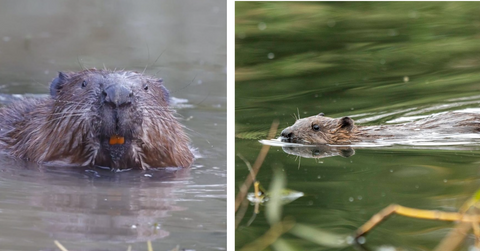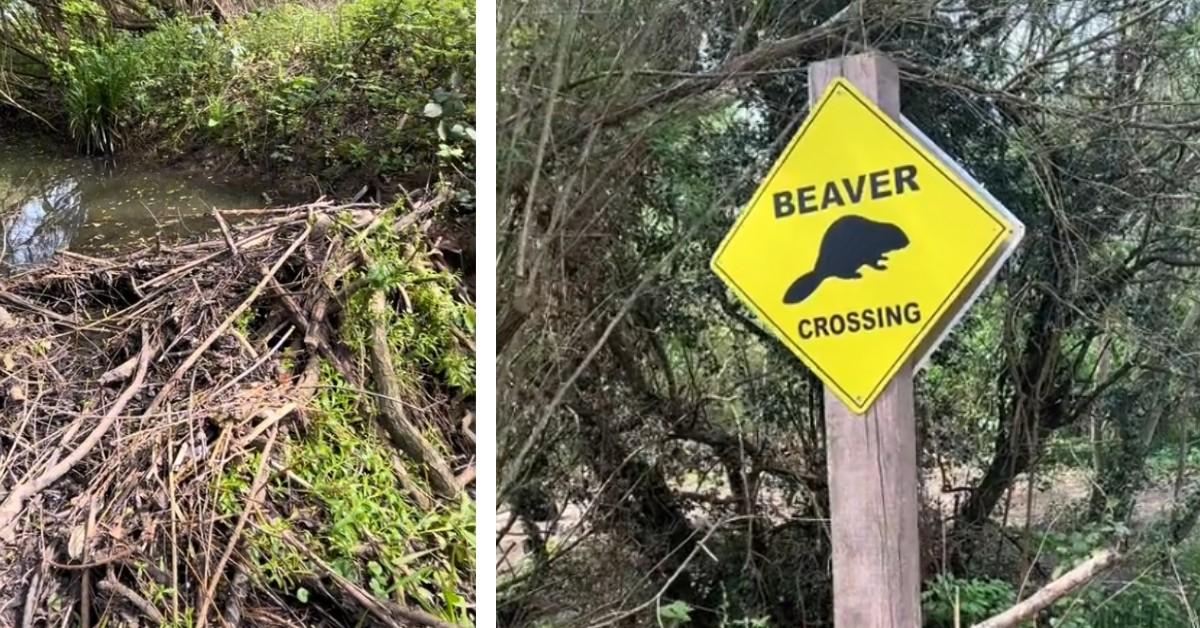Baby Beavers Born in London Are the First in 400 Years — Why That's so Exciting
There's hope that Londoners and beavers can coexist once again.
Published Aug. 16 2024, 11:01 a.m. ET
Thanks to conservation efforts, Londoners are getting to experience something that hasn't happened in 400 years. According to Ealing Beaver Project leaders, the town of Ealing has its first set of baby beavers in generations. The group is excited about the news, especially because the discovery of the kits was a bit of a surprise.
Learn more about the baby beavers born in London, and find out the sad reason why the water-loving critters have been missing from the region for so long by reading below.
London has its first baby beavers born in 400 years.
Aside from being adorable, beavers provide a lot of benefits for local ecosystems, which is part of the reason why the Ealing Beaver Project is celebrating the arrival of a pair of kits. Previously in 2022, a project pioneered by the local environmental college led to beavers being released in Enfield, North London, per Enfield Council, and in September 2023, beaver kits were born there.
The Ealing Beaver Project, which has focused its efforts around the Paradise Fields site in Greenford, West London, told the BBC it was thrilled about kits in such an urban area — Paradise Fields is neighbors with a "retail park and a fast food drive-through."
According to Dr. Sean McCormack, a volunteer on the project, they discovered the kits while watching footage captured by a wildlife camera.
"It was a real thrill to look at the camera footage and suddenly see this tiny miniature beaver, very very cute, playing with mum on 30 June," he recalled. Despite the thrilling news, McCormack said they kept it quiet at first.
Previously, the family of five beavers was released at Paradise Fields in October 2023, but researchers couldn't have suspected then what would happen, per Reuters. The beavers were relocated from the wilds of Scotland.
Now, eight months later, the family has created at least two lodges and six dams.
The Ealing Beaver Project describes its mission as "to create a sustainable environment where humans and beavers can thrive together, enriching the local ecosystem." The project is a partnership between the Ealing Wildlife Group, Citizen Zoo, Friends of Horsenden, and the Ealing Council, with support from Beaver Trust and the Mayor of London.
Hunting drove beavers in London to extinction.
Sadly, the reason why beavers have been missing from London landscapes for the past 400 years is a familiar one. The once thriving critters have been hunted to extinction by humans, who not only killed them for their meat and hides, but also for a scent gland called castoreum. According to the Center for Science in the Public Interest, the gland is used in manufacturing as a food additive designed to give things a vanilla taste.
Thankfully, the Ealing beavers shouldn't worry about facing the same fate, as conservationists working to restore London's beaver populations are set on restoring populations to help the ecosystem. The conservationists also told the BBC that beaver populations can help with everything from reduced flooding to improved conditions for other wildlife in the area.

